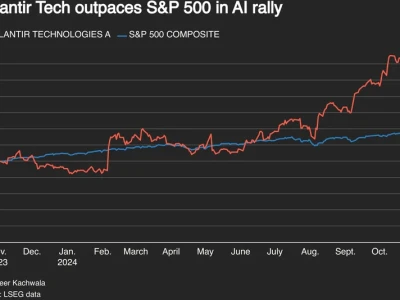When the Bots Rise Up... And Ask Nicely to Be Let In
Okay, so you're browsing the web, maybe doing some research, or perhaps just catching up on the latest cat videos (no judgment!), and suddenly—bam!—you're hit with that dreaded "Pardon Our Interruption" message. The one that accuses you, a sentient, breathing human, of being a bot. It's infuriating, right? But what if this seemingly annoying little hiccup is actually a glimpse into a future where humans and AI are constantly negotiating access, trust, and identity?
Think about it: that message pops up because something about your behavior triggered an automated defense system. Maybe you were clicking too fast, or your browser settings were a little off. The system, designed to protect against malicious bots, made a snap judgment. It's like a digital bouncer, deciding who gets into the club based on… well, let's just say the criteria aren't always perfect. But this isn't just about getting momentarily locked out of a website. This is about the increasing complexity of how we interact with AI, and how AI perceives us. This reminds me of the early days of the printing press. Suddenly, information was democratized, but there was also a huge wave of misinformation and panic. We adapted, we learned, and we built systems to navigate this new reality. The bot-or-not question is just the printing press moment for AI.
The "Pardon Our Interruption" message highlights a fundamental challenge: how do we prove our humanity to a machine? We, as humans, rely on subtle cues, body language, and shared context to understand each other. AI, at least for now, relies on algorithms and data points. It's a fundamentally different way of perceiving the world. The irony is thick enough to spread on toast: we're building AI to understand us, but in doing so, we're creating systems that often misunderstand us.
The solutions being developed are fascinating. CAPTCHAs, those distorted images of letters and numbers we're forced to decipher, are a crude attempt. More sophisticated approaches involve analyzing behavioral patterns, device fingerprints, and even biometric data. Imagine a future where you authenticate yourself to a website not with a password, but with your unique walking gait, or the way you type on your keyboard. It sounds like science fiction, but the technology is already here. The speed of this is just staggering—it means the gap between today and tomorrow is closing faster than we can even comprehend.

But here's the thing: as AI gets better at identifying bots, bots get better at mimicking humans. It's an arms race, a constant game of cat and mouse. And in this game, the line between human and machine becomes increasingly blurred. What happens when bots become so sophisticated that they can convincingly pass as human? What happens when we start adopting AI tools that make us behave more like bots—automating tasks, optimizing our lives, and outsourcing our thinking to algorithms? Are we not all becoming cyborgs to some degree?
And here's where we get to the ethical questions. Who decides what constitutes "human" behavior? What biases are baked into these algorithms? And what are the implications for privacy and autonomy? As we delegate more and more decisions to AI, we need to be mindful of the potential for unintended consequences. We need to ensure that these systems are fair, transparent, and accountable. When I first saw the demo of an AI that could detect "micro-expressions" to determine if someone was lying, I honestly just sat back in my chair, speechless. The potential for misuse is terrifying.
This isn't just about preventing bots from spamming websites. It's about shaping the future of human-AI interaction. It's about defining what it means to be human in an increasingly automated world. It's about ensuring that technology serves humanity, rather than the other way around. What this means for us is profound, but more importantly, what could it mean for you? What if AI could help us understand ourselves better, augment our abilities, and unlock new levels of creativity and innovation?
A World Where "I Think, Therefore I Am" Gets a Whole New Meaning
The rise of AI isn't a threat to humanity; it's an opportunity to redefine it. The "Pardon Our Interruption" message is a tiny blip, a momentary frustration, but it's also a signpost pointing towards a future where the boundaries between human and machine are constantly being negotiated. Let's make sure we're having that conversation, openly, honestly, and with a healthy dose of human curiosity. Because the future isn't something that happens to us; it's something we create, together.


